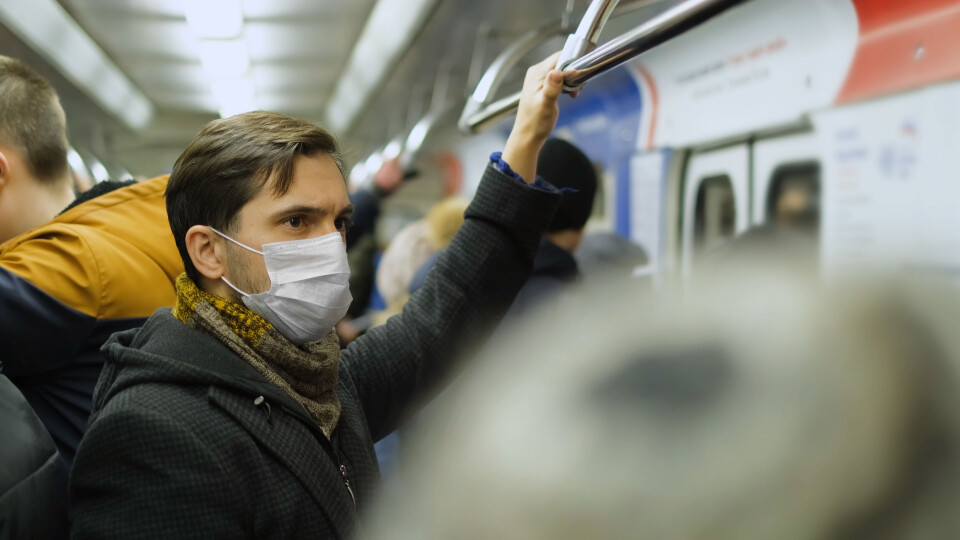-
The curious case of Good Friday: Why only some parts of France get the day off
Three French departments benefit from two extra public holidays
-
How long does it take to sell property in different areas of France? New study
Many major cities are showing signs of recovery when it comes to supply, demand, prices, and time to sell
-
Map: Car insurance costs rise in France - see the average in your region
Multiple studies show that costs are rising by around 5% year-on-year, with major differences by region and vehicle model
French Covid surge: Recap of rules if you’re positive or close contact
You can get self-testing Covid kits for free at a pharmacy if you present proof that you have been in proximity to someone who is positive

With France facing a new Covid wave, we recap the rules for what to do if you are signalled as being a close contact to someone who is positive. These vary if you are fully vaccinated or not.
Over 50,000 new cases in France are being reported each day on average, latest figures show.
Yesterday (June 23), nearly 80,000 new positive cases were recorded in France.
Read more: Coronavirus: Daily updates on the situation in France
The number of hospital admissions linked to Covid has also risen by 37% in the past week, now averaging 671 patients per day.
Infectologist Anne-Claude Crémieux recently told FranceInfo: “Here, we are clearly seeing an epidemic restart linked to the arrival of the new variants from the Omicron family, called BA4 and BA5. These variants spread more quickly.”
Professor Crémieux said that patients who are suffering the worst are older people who have had their third vaccination over nine months ago [and therefore are generally less immune to the virus and its mutations]. She said that so far, the numbers in intensive care are not rising.
People aged 80 and over have, in particular, been urged to get their additional Covid vaccine booster dose.
Read more: Covid France: Plea for older people to get fourth dose as cases soar
Read more: Leading epidemiologist warns of new Covid wave in France this summer
What to do if you are a ‘cas contact’
You can either be informed by Assurance Maladie via message or email that you have been in close proximity to someone positive with Covid (making you a cas contact), or your friend or family member may inform you.
In either case, the steps to take are the same.
You should take a Covid test two days after being informed that you are a cas contact.
This can be a PCR test, a rapid antigen test or a self test.
If you choose to take a self test, which can be picked up from pharmacies, you can get them for free by showing a message from Assurance Maladie proving you are a cas contact or, if your friend or family member informed you, by filling out a form attesting to the fact that you are a cas contact. Find the form here.
To note, children under three years old are only recommended to take an antigen or PCR test.
What happens next?
Your PCR test is positive: You should immediately self-isolate. Assurance Maladie will contact you to inform you of what to do next.
Your rapid antigen test is positive: You should confirm the result by taking a PCR test within 24 hours of the antigen result. You should self-isolate in the meantime.
Your self test is positive: You should confirm the result by taking a PCR test within 24 hours of the antigen result. You should self-isolate in the meantime.
You turn out to be positive
If your PCR test confirms that you are positive then you need to self-isolate and let those with whom you have been in contact know that you have Covid so that they can take the necessary steps.
You can ask for an arrêt maladie sick note from work while you are self-isolating here.
If you are fully vaccinated or under 12 years old, then you should self-isolate for seven days, but you can end the quarantine after five days if a PCR or antigen test confirms you are negative.
If you are not fully vaccinated you should self-isolate for 10 days but you can end the quarantine after seven days if a PCR or antigen test confirms you are negative.
You turn out to be negative
You should monitor for symptoms and if you develop any then you should take another test. If you are living in a house with someone who has Covid then you should consider wearing a mask while at home.
For more information see the Ameli website here.
Related articles
Covid: 'French case numbers could be as high as 1.5 million a day'
























